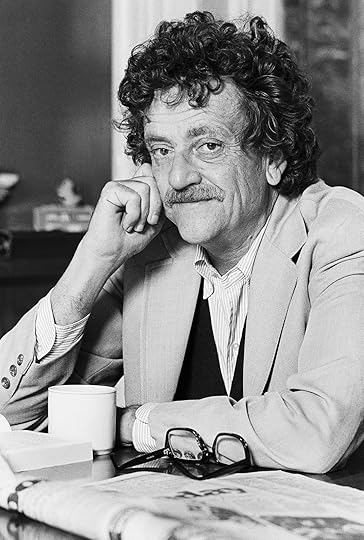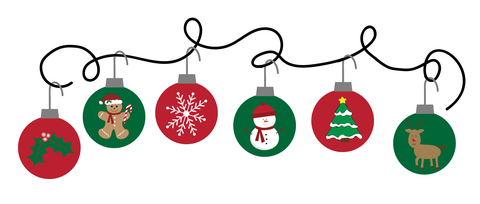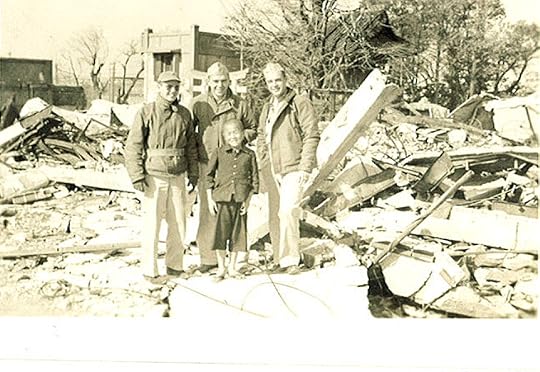Bill Baynes's Blog
November 25, 2019
JOE is now available on Audible

The Occupation of Joe is now available on Audible.com. You can also purchase three-hour audio version directly from my website.
Tokyo, 1945. A Japanese boy, survivor of the American firebombing, dares to cross the wasteland where he saw thousands burn to death to try to get food for his family from the occupying forces., A young American officer, appalled at the devastation he sees across the city, cares enough to help. As post-war pressures mount, he becomes entangled in the lives of the boy, his infant sister and his beautiful mother — at the risk of their lives and his own.
A perfect holiday gift, the three-hour audiobook is narrated by the author.
August 27, 2019
JOE ON THE GO

The Occupation of Joe by Bill Baynes is now available in audio for a limited time for only $9.
Narrated by the author, the three-hour MP3 version can be downloaded directly from his website — billbaynes.com — where you can listen to a free five-minute sample.
The Occupation of Joe is the powerful story of an American naval officer who tries to help a local boy at the beginning of the American Occupation of Tokyo in 1945.
The spare, often staccato, precision with which the narrative unfolds lends a dramatic urgency to the telling that made it hard for me to put the book down until I reached the last page.
Proud of the Allied victory but appalled by the devastation he sees across the city, the young lieutenant becomes entangled with the boy, his infant sister and his beautiful mother – at the risk of their lives and his own.
I found myself often responding with unexpected waves of emotion.
Now you can listen to the story at your convenience on your tablet, your car radio or your computer.
I continued to think about the characters and their complex connections long after I finished reading.
(Italicized statements from reviews posted on Amazon.)
April 4, 2019
JOE FOR A BUCK

Special Publisher Promo: Ebooks for 99 cents each.
The Occupation of Joe is an emotionally powerful page-turner from Top Hat Books, publisher of quality historical fiction. Ebooks are available through April for less than one dollar.
The end of World War II, 73 years ago in Tokyo, an American officer tries to keep a Japanese youngster alive. It isn’t easy. The boy’s family gets involved. So does the U.S. Navy. Things keep getting worse.
March 6, 2019
New Story Published: THE FEARFUL HURLER
My new short story concerns a big-league pitcher afraid of getting hit by a batted ball. It’s published in Aethlon, a literary sports journal.
THE
FEARFUL HURLER

Bill
Baynes
He
ambled in behind his Oakleys. The noise level lowered like an officer had
entered the enlisted men’s barracks. The starter had arrived in the clubhouse.
No
one could see past his tight smile. No one could see how scared he was.
Nate
Burnam saw himself as a soldier and the playing field as a war zone. The fear
was everywhere. Any sane person would be afraid. Any pitcher, anyhow. Most of
the other players didn’t have a clue.
Catching
Jefferson’s eye across the room, he nodded and proceeded to his locker at the
end of the row. He undressed, cinched a towel around his waist and went
straight to the trainer’s room.
He
spent fifteen minutes with his arm in the cold whirlpool. He could feel his
body waking up. When Jefferson appeared, he dried off and stretched for a few
minutes, getting the blood moving in his back and shoulder. The trainer helped
him reach further and hold longer than he could by himself. Jefferson gave him
some soft tissue massage, concentrating on the tightness in his elbow. The
soreness retreated.
His
throwing arm felt like glass. Nate was careful not to bump it.
Back
in the locker room, he always got his space. Other players left him to himself.
The starter’s due.
He
smoothed lather on his face and shaved, his habit before every one of his
games. Others affected the two-day beard, trying to look tough, but Nate liked
to be clean and neat. For him, a smooth chin was part of being prepared.
Most
days he was able to forget about his dread, to fill his mind with all the
details he needed to master before he took the mound. But some days he couldn’t
stop thinking about it and this was one of them.
He
knew why. He stared at his face in the mirror. Jackie Favrel.
It
wasn’t the game that frightened Nate. He loved the competition, looked forward
to it. It wasn’t the pain he knew he’d have to push through on every pitch. He
was used to that. It was the risk of getting hit. Anyone could see it, if he
knew what he was looking for. Whenever the batter swung, Nate flinched and
brought his glove in front of his head.
When
he finished his follow-through, Nate was fifty feet from the plate, off-balance
and totally exposed. The ball came back at more than 100 miles per hour. Pitchers
were struck by batted balls every season. It was one thing to deflect it off
your back or your foot, even your knee. But pitchers got it in the face. They
got concussions. They got their noses broken, their teeth smashed, their
careers ruined. Not often, but it happened. Too often.
Nate
assumed that most, if not all, hurlers felt the same way he did. He’d seen
others ducking or trying to protect themselves when they saw the bat come
across the plate. He knew they were terrified. He’d seen some of them trying to
dull the edge later with booze or drugs or girls.
But
they never talked about it. They never admitted it, not even to each other. So
much of pitching is mental. The man on the mound could never show his fear. He
had to dominate, to be superior, to sneer at every batter. Certainly not to
cower.
You
can cut yourself to ribbons when you take a razor to your jaw, he thought, but
you shave anyway. You keep your cool. You try to be careful. You get the job
done.
He
wiped the lather off his face, went back to his locker and dressed. Slowly.
Methodically. Making sure his stockings were straight, he pulled them up
outside his pants. He tucked in his shirt. He checked that the stripes on his
uniform trousers were straight.
He
found a cup of coffee and Maxie, his catcher. Did he suspect? They spent a
half-hour going over the hitting charts again, talking about how they wanted to
attack each hitter. Who’d been hot lately? Who was a first-pitch swinger? Who
took a lot of pitches? What did they strike out on? Did they stand in the front
or the back of the box? Slow hands or fast hands?
Then
it was onto the field for warm-ups. Nate jogged to center and back to the
dugout. He did a few wind sprints and then a couple longer ones. Some dynamic
stretching of both arms and legs, loosening up.
He
paired up with a reliever to play catch. Starting close, about 45 feet apart,
they threw soft line drives to each other. They backed up until they were
long-tossing the width of the outfield. Nate could feel his arm coming alive.
He
went to the bullpen, where Maxie was waiting, and took the mound. Starting easy
and gradually throwing harder, he threw his fast ball, focusing on location and
command. He went to each of his other pitches — the curve, the slider, the
sinker, the change — thinking about his mechanics, his release point. He knew
that a scout from the opposing team was watching. He tried to convince him that
he had all his weapons for this outing.
He
threw the last ten pitches from the stretch.
He
put on his jacket to keep his arm warm, had a long drink of water and ate a few
aspirin. Then he took a seat on the bench. He was the only one there.
He
thought about which pitches were working today and which were giving him
trouble. How did that change the game plan?
His
mind drifted to Jackie, his one-time roomie. They’d played together in the
minors before his friend was traded to Texas. Fresh out of school, their first
time in pro ball, they’d relied on each other. They’d been so close, they’d
shared almost everything. He should’ve kept his mouth shut about some things.
The
only person he ever told about his fear was batting against him tonight.
*
* * *
The
anthem over, thousands settling into their seats, Nate led his team onto the
field. It was mid-September, late in the season, and the fans were excited. Nate
ascended the hill and Maxie tossed him the ball.
It
fit his hand like an eye fits its socket. It calmed him like a musician picking
up his instrument. His fingertips tingled, rotating the ball, feeling the
seams, putting it in position.
Nate
took a big breath. He bent his head back and rolled it back and forth. The
crowd noise receded. He took his place on the third-base side of the rubber. He
believed it gave him a better angle, more of the plate to work with. He put his
ten warm-ups in the middle of Maxie’s mitt to show he was ready.
As
the first Ranger stepped into the box, Nate stood alone, hardly hearing the
clamor surrounding him. This was his moment. This was his game. He glared down
at the batter.
Maxie
signaled for the heat. Nate brought his hands together in a set position in
front of his chest, pumped and raised his hands over his head, leaning back and
bringing his leg high. Then he rolled forward onto that same leg, his arm
trailing his torso, his elbow in a contorted position. He pushed down with his
index finger and snapped his wrist, spinning the ball and releasing it, as his
other leg whipped around and his hand nearly touched the ground.
For
an instant, pain blanked everything else.
The
batter swung and Nate winced behind his glove. The ball scooted toward third,
where Jose scooped it up and threw across the diamond to first for the out.
The
first inning is the most vulnerable time for most pitchers, as they struggle to
get each pitch to work, to find their control and to learn the ump’s strike
zone. It was no problem for Nate. Not tonight. He struck out the second hitter and
got a soft fly to right from the third.
Favrel
was the second batter next inning.
Nate
sat by himself, while his team had its ups. No one spoke to him. He went over
Jackie’s tendencies. The Rangers shortstop had always liked pitches low and
inside, where he would turn on them and pull them into left field. If he knew a
curve was coming, he would time it and scald the ball.
Back
on the mound in the top of the second, Nate couldn’t do anything with the first
batter. Four pitches in a row missed Maxie’s mark by two inches. A lead-off
walk.
Nate
chalked it up to distraction.
Favrel
stepped up, knocking dirt off his cleats, snugging his batting gloves, taking
fierce practice cuts. Not looking at Nate. He dug in with both feet and
swiveled his hips into a comfortable position. Only then did he finally turn to
the mound and he flashed a wide-eyed, slack-mouthed zombie stare, just for a
split-second – they were both avid undead fans – before his game face snapped
into place.
Nate
was startled, a little disarmed. He couldn’t smile at his opponent. He knew he
was live on the local sports channel. He covered his mouth with his glove and
walked down the back of the hill. He picked up the rosin bag and shook it,
looking toward the outfield, the stands a blur in the background.
Regaining
his position, he put his foot on the rubber and stared in. Jackie cocked his
bat, and Nate noticed he kept his rear shoulder down. That meant he was looking
for something low. He stood with his feet together, set to hit toward left.
Nate
shook off Maxie’s call for a curve. He wanted to throw number one. He reared
back and put everything into it, loosing a vicious fast ball that started at
mid-thigh and rose as it approached home.
Jackie swung under the pitch and Nate jerked. He
wondered if his old friend even remembered his fearful secret.
He arched his back, hitched up his pants and returned
to the rubber. He agreed with his catcher, a breaking ball away. Nate wound up
and delivered a sweet spin, but the pitch didn’t clip the outside corner, as it
was supposed to. It slid into the heart of the strike zone.
Jackie watched it go by for strike two.
Nate knew he’d gotten away with one. That pitch
could’ve gone a long way. The throw hurt his elbow, but not nearly as much as
the heater. That had lit up his entire arm.
Two wasted throws, one in the dirt and the other way
wide. He held back on both, guarding his arm. An easy toss to first.
Then a slider tailing in, a dangerous choice to Favrel.
He took a rip (Nate ducked), but he barely clipped the ball. It was a routine
grounder to second that turned into a double play.
Nate turned away and walked around the mound, avoiding
eye contact as Jackie trotted back to the dugout.
The next batter popped up on the infield. Nate could
tell by the sound that the ball was not solidly met.
*
* * *
In
the third inning, Nate had given up a double and a two-run homer. The Rangers
were ahead 2-0.
He
was angry at himself, but he wasn’t about to let that interfere with business.
On the contrary, Nate became cunning. Pitching is upsetting the hitters’
timing. He became a consummate clockmaker.
A
breaking ball that snaked backward and crossed the outside corner at the knees.
A filthy slider to the batter’s back foot. A little more speed. A little less.
Nate rode his rage to get an extra two or three miles per hour on his heater on
selected throws. Using assorted arcs and angles, he delivered the pitch to the
spot, a square inch in the center of Maxie’s mitt, again and again, as precise
as an arrow. He made quick work of the first two hitters in the top of the
fourth.
Then
Favrel settled into the box and it all went out the window.
A
wave of fatigue swept over Nate. He was tired. Beyond tired. He’d never pitched
so many innings before in a single season. Skip had really leaned on him in the
last half of the season. He fought to keep his focus.
As he watched Favrel go through his routine, images
flickered through his mind. They’d been inseparable, the shortstop and the
pitcher, for the two years they’d played for the double-A San Jose Giants.
They’d bunked together. They’d eaten together, partied together. They’d gone
over the opposing teams together, talking deep into the night about each
player. The two friends had expected to climb the ladder together, but Jackie
had been traded to Rangers. Nate had made it to the San Diego Padres seven
months later.
They hadn’t seen each other since then, nearly two
years ago, their busy lives taking them in opposite directions, their teams in
different leagues. Now their careers had intersected again.
Favrel
looked out at the mound and raised his eyebrows. Well? What are you waiting for?
Attuned
to non-verbal communications because he couldn’t hear much on the mound, Nate snapped
out of his reverie. He consulted with Maxie and then went into a big windup,
all arms and legs, and released a fat one heading right for the center of the
plate. But it was a change-up, slower than it seemed, a tease to an impatient
batter. Favrel swung before it got there.
Nate
felt another twinge in his elbow. He shied when he saw the bat move.
Favrel
cocked his head and narrowed his eyes at his former roommate. Still spooky on that swing, huh? He
looked down at the plate and shook his head.
Nate
quick-pitched him. Without waiting for Maxie, without a full windup, he hurled
a stinger right down the middle for a second strike.
Favrel
backed out of the box. He took off his gloves and carefully put them back on, adjusting each finger. He took two
practice swings. He’s trying to aggravate me, Nate thought. It wasn’t working.
Nate
tried a sweeping curve, ignoring a lance of pain, aiming for the outside
corner. Maxie caught the ball and stood, ready to walk off the field, but the
ump missed the call. He signaled that it was a ball.
Favrel
smiled at the plate. Nate looked toward the sky. He plopped his glove with his
fist, turned around and walked to the mound, his head down, thinking about the
next pitch.
The
stadium noise was deafening. Tens of thousands of fans were screaming at the
top of their lungs, but few of them noticed the game within the game. The Padres
infielders caught on. Maxie knew there was something going on between his
pitcher and this hitter. He called for a high, hard one, like the one that
struck Jackie out in the second inning.
Nate
tried to comply, but it got away from him. The catcher had no chance. He had to
chase the throw to the backstop.
The
count was two balls and two strikes. Favrel grimaced.
The
next pitch was a slider, running down and away. Jackie took a mighty cut and
topped the ball off the plate, a foul.
Nate
found himself dipping and struggling for footing. Struck an eighth of an inch
lower, he realized, a ball like that would come right at the pitcher.
Favrel
glared at him and Nate felt a stab of fear. His pulse spiked. He’s trying to
hit me, he thought. He’s hunting me.
He
looked away and tried to collect himself. The noise from the crowd poured in
and, for the first time, he noticed someone in the stands, a woman, a flash of
light on her sunglasses, her smile. He sighed. She was beautiful. As she turned
away, she fell out of his mind.
Nate
decided to go with the change again. It’d worked before. He wound his body like
a spring, uncoiled and heaved another ball that seemed like it moved through
molasses. He fell into a crouch facing the plate and Jackie waited and whaled
at the pitch.
The
bat sounded like a gunshot. There was no time to get out of the way. Nate
twisted and threw up his arm. The ball hit him high in the back and caromed
toward second base. Nate went down, his leg buckled under him
The
Padres shortstop managed to grab the ball in the air for the final out of the
inning.
Nate
felt like he’d taken a punch, a hard one, hard enough to knock him down. Son of
a bitch, it hurt, but no one would know it. He popped to his feet, waving away
the trainer coming up the dugout steps. He willed a casual walk off the field.
*
* * *
Seventh
inning, Padres trailing 4-2. Nate was working on fumes. He did not want to see Favrel
again.
He
knew he was near the end of his night. His arm felt like it belonged to someone
else. He observed it objectively. How many more pitches could he get out of it?
He knew that skipper had nowhere to go, no one else to go to. The bullpen was
already overused. So was he.
He’d
already been hit by a batted ball once. He ought to get some sort of
dispensation, a pass for the rest of the game. But no. Here he was back in
harm’s way. Unless his career was over, he had to find the grit to make another
pitch.
He
believed that other hurlers must feel the same way, but he still felt alone.
Ashamed. Show no pain. That was the code
in baseball. Show no fear. Never waver. Never admit to weakness.
He
stared in at Maxie, who pushed one hand toward the ground. Keep calm? Keep it down?
Favrel
brought the lumber over the plate deliberately. Once. Twice. He wore a smug
smile. Nate hated him. He was afraid of him.
He
reared back and loosed a high, outside pitch. Maxie had to jump to his feet to
grab it.
Nate
caught the return throw, took a long trembly breath. He had to recover his
control. Of his pitches. Of his fears. Maybe his arm knew more than his mind,
he thought. Maybe the solution to his own safety was to throw balls that Favrel
couldn’t reach.
Favrel
was joking with Maxie. What was that about? Laughing about his last throw?
Trying to piss him off, no doubt.
Nate
tried again. He quieted himself, found his poise and threw as hard as he could,
his whole body straining, his arm contorted. But he was a little ahead of
himself this time, dragging his arm a little too far behind as he drove toward
the plate, torqueing his shoulder.
Nate
gasped in agony as his back leg landed. His entire arm went numb for a moment.
The
pitch went in the dirt. Maxie had to hop to the side to block it.
He
trotted out to the mound. He knew Nate was hurting and wanted to give him a
short break. Catchers know a lot about pain.
“What do you think you’re doing?” he asked.
“Son of a bitch got in my head,” Nate answered,
rubbing the feeling back in his arm with his other hand.
“Get in his,” Maxie advised.
As he settled behind the dish, he got a signal from
the bench, which he flashed to Nate. Skip wanted him to walk Jackie. Then the
manager would make that long trek to take his pitcher out, Nate thought.
The
hell. He’d do what he wanted.
He
looked in at Favrel. The batter made a face. He pawed the dirt at his feet. Any
friendship was forgotten now, lost in the intensity of the contest.
Nate
gripped the ball. Did he have the guts to bust him inside? Did he have the
command to back him off the plate?
One
more time, maybe the last time, he went into his windup, bringing his arms up,
finding his rhythm. Back and then forward with the full force of his entire
torso, every muscle in his being. Up and in.
Favrel
threw himself backward onto the grass. The crowd roared.
They
can’t take me out now, Nate thought. Not with the fans worked up. They’ve got
to let me throw at least one more.
Favrel
picked himself up, dusting himself off and adjusting his helmet. He faced the
mound. Nate returned his look. For a long moment, the two men stood staring at
other. It had gotten personal and now everyone in the stadium knew it.
The
Rangers were halfway onto the field. The umpires were screaming to restore
order. The crew chief issued an official warning: a hit batter meant ejection.
Or worse.
On
the hill, Nate leaned his head back and swiveled it left to right, right to
left. He rolled his shoulders and stretched both arms. Then he stood tall,
looking down at the plate. Everyone was paying attention. It was still his
game.
Favrel
had his weight back on his heels in case he had to get out of the way again. He
couldn’t be sure that the last pitch was on purpose.
The
next pitch was head-high and Nate could see the hitter hitch, just an inch.
Enough to be out of position when the ball hooked left and spun down across
home. No way Jackie was ready for that strike.
Three
and one.
Favrel
kept one foot out of the box, fussing with his gloves, avoiding eye contact. He
stood at the plate and concentrated on his own slow-motion swing.
Nate
ached everywhere. He assessed his arm. Buzzing like it had been asleep, it felt
elastic. If he threw hard enough, it would reach all the way to the plate. He
could wait until Jackie swung and then drop the ball at his feet. He shook it
and his elbow pinged. He figured he had one, maybe two throws left. He snugged
his cap lower.
Unexpectedly,
he experienced another flush of fear. It’d be just his luck to have lightning
strike a second time, right in the kisser. He picked up the rosin bag, bought a
few seconds to reset. He caught the second baseman’s eye, gave him a short nod.
Back
on top, he pumped and rocked, imagining the amazing, lengthening limb, the arm
that never ends, never quits. He gave it everything he had left, every ounce of
his strength.
Nate’s
last pitch came in with a visible spin and, for a moment, it looked like it
would hang at waist level over the center of the plate. As Favrel began to move
his bat forward, the bottom dropped out and the ball fell like a rock. Favrel topped
a weak grounder to the first baseman, standing on the bag.
*
* * *
Afterward.
Icing
the shoulder and elbow. Getting props from the guys, pats on the back. “Way to fight.”
“You kept us in the game.”
Taking
a long shower. Trying to let the effort wash off him.
The
Pads lost, but Nate was feeling a lot better as he toweled off at his locker.
It was five days before he had to wear the target again. He could kick back.
He
gulped a few more aspirin, heaped his platter at the post-game spread and sat
down next to Maxie, who was carving a steak.
“How
d’ya know that Favrel guy?” he asked, his mouth full.
“Played
together in the minors.”
“You
got some problem with him?”
“Not
really. Just trying to win.”
Maxie
wasn’t buying. “Not like that with the others.” He turned back to his sirloin.
Nate
pushed back. Weary. Truly whipped. But the pain pills had kicked in and he felt
mellow. He didn’t want to go home yet. He usually had trouble sleeping after he
pitched and he knew he’d be hard to be around.
He
didn’t want to go on the town either. He’d seen pitchers cut their careers
short in a bar or the backseat of a car. He thought of giving Jackie a call. That
lame bastard, it would be good to catch up. He knew where the visiting players
stayed.
No.
Not tonight. Too much energy. He needed to be alone. Take a long walk and clear
his head. It was becoming his routine after home games.
He
drove out to the coast and left his Porsche in the visitors’ lot at a nearby
beach. It was completely empty at this time of night, nearly two in the
morning.
Nate
trooped up the shoreline, moving into the wind. He found firmer footing where
the surf pulled back, but he had to dodge the incoming surge. His hair blowing,
he pulled his jacket around his neck.
He
listened to the ocean and he tried not to think. He pushed on until his legs
stung from sinking in the sand and pulling up again, from dancing with the
waves.
Still
he kept going and after a time the throws spilled out of him, one by one rising
in front of him –the happy accidents, the mistakes, the bullets that had missed
him on the field of battle, the one that didn’t. He was able to look at them all
and to learn and sometimes to mourn before each splashed into the surf behind
him and swept out to sea.
Then
he could go home and sleep.
#
# # #
December 20, 2018
NEW KURT VONNEGUT STORY PUBLISHED
Getting the Nerve, a novellette about the early life of Kurt Vonnegut, has been released in a new online publication, the Magazine of History and Fiction.
(https://historyandfiction/listofissues)
 Author Kurt Vonnegut Jr. in New York City in 1979. (AP Photo/Marty Reichenthal)
Author Kurt Vonnegut Jr. in New York City in 1979. (AP Photo/Marty Reichenthal)
Set in 1949, meticulously researched, the 8,400-word story reveals Kurt as a young man trying to find the courage to quit his job to write fiction full-time. A publicist for General Electric and a member of the volunteer fire department, he struggles with the pressures of family life, growing disaffection with his work and undiagnosed PTSD.
The 8,400-word piece offers a glimpse into Vonnegut’s life before he was published.
November 26, 2018
THIS HOLIDAY, GIVE A GOOD READ!!

THE OCCUPATION OF JOE
“A timely, important, and compelling read.”
Now Available on Amazon.com

October 1, 2018
SOME READINGS SCHEDULED

For those interested in hearing The Occupation of Joe, as well as a few poems, I’ve scheduled some readings:
Oct. 3 at 7 p.m. Open Mic, San Carlos library
Oct.18 at 7 p.m. San Mateo Library
Nov. 10 at 10;30 a.m. San Mateo Library
Dec. 8 at 9 a.m. on Barnes and Noble Authors Day
Dec. 19 at 7 p.m. San Carlos Library
Let Technique Torque Your Poetry
I’ll be reading from The Occupation of Joe in the October readings and on Authors Day at Barnes and Noble, Hillsdale, San Mateo.
The Nov. 10 readings will include poems published in Fault Zone, the literary anthology published by the California Writers Club, SF Peninsula branch. The Dec. 19 presentation includes a discussion of how well-known poets used various techniques to enhance the effect of their works.
September 24, 2018
SOME GREAT REVIEWS
Some great reader reviews have been posted on Amazon and Goodreads about The Occupation of Joe.
“Lyrical and poignant” wrote one reader. Another labelled the story “poignant, thoughtful.”
“Emotionally gripping”
“A book you won’t forget any time soon.”
Several said they read the story in one sitting. “I couldn’t put it down,” two people said.
Set in Tokyo in 1945, The Occupation of Joe is about a young American officer, who befriends a local boy at the beginning of the American Occupation of Japan. As post-war pressures mount, he becomes entangled in the lives of the boy, his infant sister and his beautiful mother – at the risk of their lives and his own.
“The genius of this book is in the representation of the best and worst in human beings,” another review wrote. “Author Baynes describes well the full breadth of human emotion, formed in large part by living conditions and the possibility of a better life. This book should be turned into what would be a great film, with the theme that HOPE is that which gives our lives meaning.”
A woman in New Mexico said: “I loved the power of the prose. It reminded me of Hemingway’s style. The story flowed so smoothly that it was impossible to put down”
“In unadorned language that puts the reader right there on the cold and devastated Toyko streets, Baynes explores the nuances of the relationship between occupied and occupier in a tale that resonates beyond its time,” another reader reported. “I continued to think about the characters and their complex connections long after I finished reading.”
One review was headlined The Occupation of This Reader.” It concluded: “Baynes, erstwhile AP reporter and filmmaker, writes with the urgency of a dramatist and the clean, no-nonsense prose of a beat reporter. I found myself caring deeply about these three people. I highly recommend The Occupation of Joe.”
I hope you’ll give it a try. Find out for yourself what these readers are talking about. Image
Image
August 31, 2018
The Occupation of Joe has been released.
The Occupation of Joe, my new novella, was officially released today. You are now able to order paperback or digital copies on Amazon.com or directly from my publisher.
What happens when a young man sees the human cost of war? After years of single-minded hate, of trying to defeat the evil empire, what happens when he finds himself face-to-face with a child on the edge of starvation?

Tokyo, 1945. A young American officer befriends a local boy at the beginning of the American Occupation of Japan. As post-war pressures mount, he becomes entangled in the lives of the boy, his infant sister and his beautiful mother – at the risk of their lives and his own.
Published by Top Hat Books, purveyors of quality historical fiction, The Occupation of Joe is an emotionally charged novella, a compelling post-war tragedy. It’s a fast read, told in short, propulsive chapters through alternative viewpoints.
I hope you’ll give it a look. And please let me know what you think. If you like it, there are ways you can help me to promote it.
For more information, please visit my website.billbaynes.com
August 16, 2018
Why another blog
Obviously, I’m trying to sell my writing. All the marketing guides say I need to establish ongoing contact to friends, colleagues and interested readers. So I’ll do that. I’ll keep urging you to read The Occupation of Joe. Next spring, I’ll be pushing another book, a middle-grade novel.
But I also like to think aloud. This blog is a place for me to do that on a variety of topics:
• Books
• Ideas
• Interesting stuff
• Baseball
• Sometimes a photo or two
• Even an occasional poem
I’ll get a lot less directive and a lot more speculative.
The blog will be published at strictly irregular intervals. That might mean weeks. It might mean hours. Click the setting for “whenever.”
I welcome your comment, your interaction.
Do you think I need to find a name for the blog? A masthead?
What do you think? What do you suggest?



